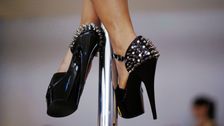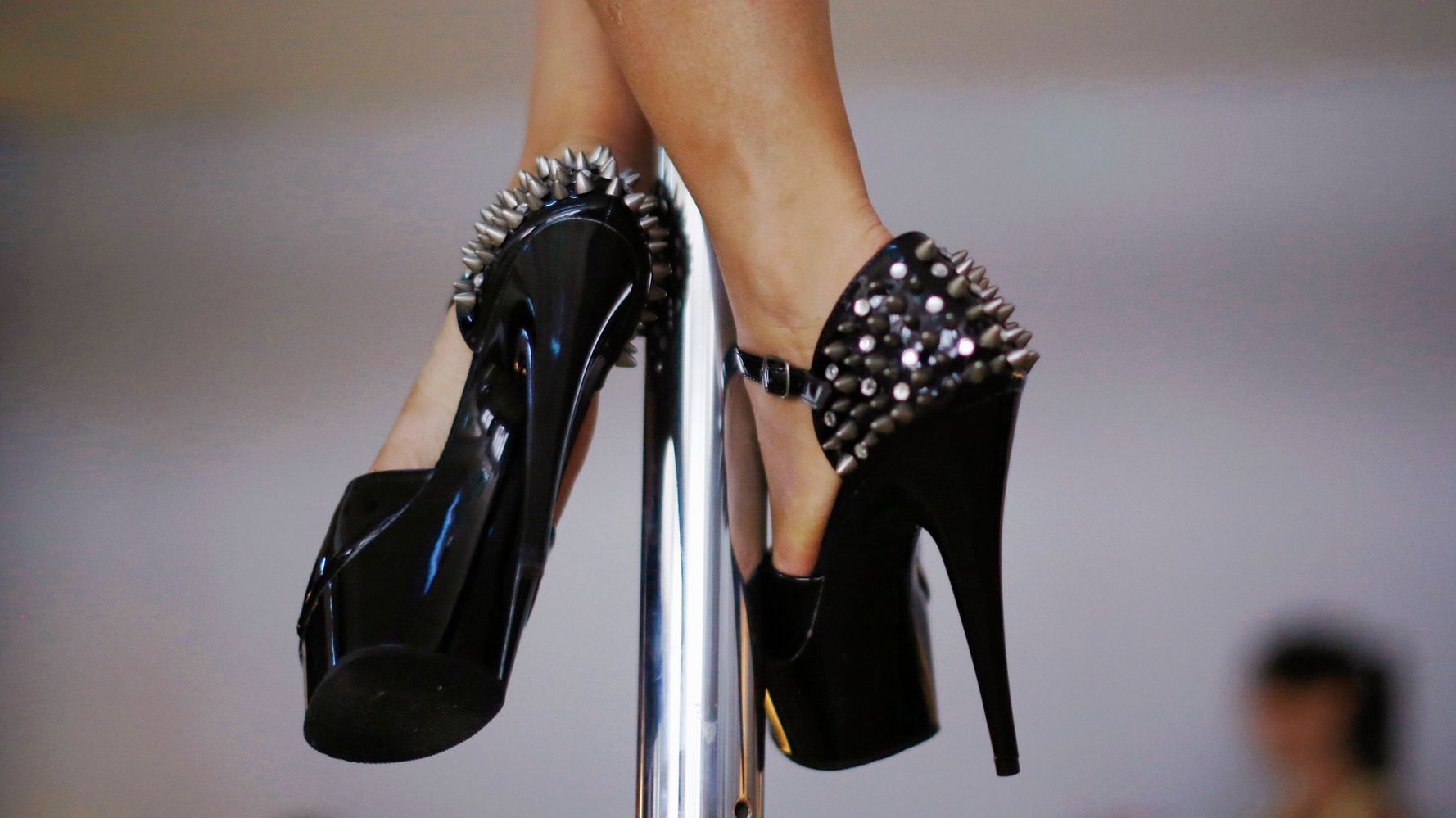[ad_1]

When Congress passed the massive $2 trillion bailout bill last week, it made sure that self-employed people or other independent workers could apply for loans or grants from the Small Business Administration. But there was one very specific ― and puritanical ― exception: legal sex workers and others in the adult entertainment industry.
The very first page of the online application says that in order to be an “eligible entity” that can receive monetary relief from the bill, an applicant cannot “present live performances of a prurient sexual nature or derive directly or indirectly more than de minimis gross revenue through the sale of products or services, or the presentation of any depictions or displays, of a prurient sexual nature.”
Prurient, which is defined by Oxford as “having or encouraging an excessive interest in sexual matters,” is a vague categorization that broadly includes thousands of workers in the U.S. As stated, the clause excludes everyone who works in the legal (and, worth noting, booming) sex industry including strippers, porn performers, producers, directors, sex toy manufactures and many others. It’s unclear whether this clause includes other professions that don’t explicitly deal in the sex industry, but do cover subjects that are of a “prurient sexual nature” such as sex therapists and authors of erotica novels.
“It’s so dehumanizing,” Jacqueline Frances, a stripper, comedian and author, told HuffPost. “They’re asking all of us, who work legally, to feel ashamed about what we do. They are actively making life harder for sex workers in this crisis.”
Andrew Stettner, a senior fellow at progressive think tank The Century Foundation, said it “makes zero sense” for any legal workers to be denied aid. “The relief packages passed thus far have neglected ― and often explicitly excluded ― the most vulnerable workers. Sex workers are no exception,” he told HuffPost.
It seems if I sold any other product, for example chairs instead of blowjob machines, I would have been able to receive payroll relief funds.
Brian Sloan, owner of Very Intelligent Ecommerce Inc.
Suki Dunham, founder of sex toy company OhMiBod, wasn’t surprised when she heard about the prurience clause. Dunham and her husband, who together created OhMiBod, first learned of the clause over a decade ago when they founded the company and tried to apply for an SBA-backed loan. The SBA rejected their application because of the prurience clause, and Dunham has had to find funding elsewhere ever since.
“We serve our community by employing people,” she said, adding that OhMiBod has had to lay off many employees due to the coronavirus. “We are sound employers offering our staff competitive salaries and benefits, such as health care. We are no different than any other small business out there.”
The restriction against prurient businesses receiving federal disaster funds dates back to 1995 when the Clinton administration helped define the SBA’s eligibility rules and regulations. The SBA determined that it would exclude small businesses that engage in “lawful activities of an obscene, pornographic or prurient sexual nature,” according to the initial proposal.
HuffPost spoke with several people, in addition to Dunham and Frances, who work in the sex industry who were baffled that their government is so flagrantly denying them relief during a global crisis. Many of them intended to apply for relief and are now left in limbo, unable to work or collect aid.
Brian Sloan, who owns Very Intelligent Ecommerce Inc., a company that produces oral sex simulators for men, said he and other entrepreneurs in his network were looking to apply for relief but decided not to when they read the prurience clause. “It seems if I sold any other product, for example chairs instead of blowjob machines, I would have been able to receive payroll relief funds,” he told HuffPost.
He has the same payroll expenses as any other small business in the country, Sloan said. “A disaster seems like a perverse opportunity to punish taxpayers who have done nothing to harm others,” he added.
We need a compassionate acknowledgment of our work as legitimate labor.
Andre Shakti, a sex worker based in Baltimore
Jules Jordan is having the same issues as Sloan. The porn actor, director and producer, who’s been in the business for 20 years, has paid millions in taxes on his production and distribution company, and yet he’s still excluded from receiving aid during the coronavirus outbreak. He told HuffPost he’s trying to keep his employees on the payroll, but it hasn’t been easy since the entire industry shut down filming indefinitely.
“We need a compassionate acknowledgment of our work as legitimate labor,” Andre Shakti, a sex worker based in Baltimore, told HuffPost.
Shakti said she’s lost about 85% of her income because of the COVID-19 crisis. Over half of her earnings come from explicit sex work, and the remainder comes from nonexplicit work including writing about sex and being an intimacy and sex coach. Even her nonexplicit work, however, still bars her from receiving aid through the small business stimulus package. Although Shakti is worried about her livelihood, she said she’s more worried about those most vulnerable in the industry including street sex workers and genderqueer sex workers of color.
The majority of people who spoke with HuffPost said they will no longer apply for relief after reading the prurience clause. Frances, the stripper, comedian and author, said she has no choice ― she has to apply, noting that sex workers have always had to “rephrase the truth” about what they do in order to survive.
Jordan darkly joked about what could be next for workers in the sex industry as the coronavirus spreads: “I can’t help but wonder if I will be excluded from being provided a ventilator if need be, due to my profession.”
A HuffPost Guide To Coronavirus
Calling all HuffPost superfans!
Sign up for membership to become a founding member and help shape HuffPost’s next chapter
[ad_2]
Source link

